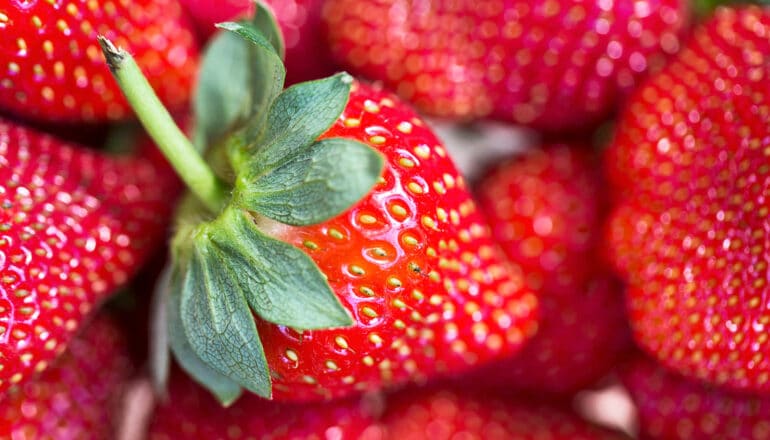Natural compound from fruits may slow ALS and dementia
- Researchers have discovered that kaempferol, a natural antioxidant found in fruits and vegetables like kale and berries, may help slow ALS (Amyotrophic Lateral Sclerosis) and dementia by supporting nerve cell health.
- The compound has been shown to improve energy production, reduce muscle atrophy, and ease stress in the protein-processing center of nerve cells, which is disrupted in individuals with ALS.
- However, kaempferol is not easily absorbed by the body, requiring large amounts (up to 10-11 pounds of kale per day) to see real benefits in humans, making it challenging to develop an effective treatment.
- Researchers are exploring ways to increase the dose of kaempferol or modify it so it can be more easily absorbed into the bloodstream and reach the brain, where it may have a greater impact on neurodegenerative diseases like Alzheimer’s and Parkinson’s.
- The team is currently developing lipid-based nanoparticles that can encapsulate kaempferol and target it to neurons, which could greatly increase its beneficial effect and potentially lead to new treatments for ALS and other neurodegenerative diseases by the end of the year.

A natural compound found in everyday fruits and vegetables may hold the key to protecting nerve cells—and it’s showing promise as a potential treatment for ALS and dementia, according to new research.
“It’s exciting to discover a naturally occurring compound that may help people suffering from ALS or dementia,” says Smita Saxena, a professor of physical medicine and rehabilitation at the University of Missouri School of Medicine and lead author of the study.
“We found this compound had a strong impact in terms of maintaining motor and muscle function and reducing muscle atrophy.”
The study discovered that kaempferol, a natural antioxidant found in certain fruits and vegetables, such as kale, berries, and endives, may support nerve cell health and holds promise as a potential treatment for ALS.
In lab-grown nerve cells from ALS patients, the compound helped the cells produce more energy and eased stress in the protein-processing center of the cell called the endoplasmic reticulum. Additionally, the compound improved overall cell function and slowed nerve cell damage.
Researchers found that kaempferol worked by targeting a crucial pathway that helps control energy production and protein management—two functions that are disrupted in individuals with ALS.
“I believe this is one of the first compounds capable of targeting both the endoplasmic reticulum and mitochondria simultaneously,” Saxena says. “By interacting with both of these components within nerve cells, it has the potential to elicit a powerful neuroprotective effect.”
The catch? The body doesn’t absorb kaempferol easily, and it could take a large amount to see real benefits in humans. For instance, an individual with ALS would need to consume at least 10-11 pounds of kale in a day to obtain a beneficial dose.
“Our bodies don’t absorb kaempferol very well from the vegetables we eat,” Saxena says. “Because of this, only a small amount reaches our tissues, limiting how effective it can be. We need to find ways to increase the dose of kaempferol or modify it so it’s absorbed into the bloodstream more easily.”
Another hurdle is getting the compound into the brain. The blood-brain barrier—a tightly locked layer of cells that blocks harmful substances—also makes it harder for larger molecules like kaempferol to pass through.
Despite its challenges, kaempferol remains a promising candidate for treating ALS, especially since it works even after symptoms start. It also shows potential for other neurodegenerative diseases including Alzheimer’s and Parkinson’s.
To make the compound easier for the body to absorb, Saxena’s team is exploring ways to boost its uptake by neurons. One promising approach involves packaging lipid-based nanoparticles—tiny spherical particles made of fats that are commonly used in drug delivery.
“The idea is to encapsulate kaempferol within lipid-based nanoparticles that are easily absorbed by the neurons,” Saxena says. “This would target kaempferol to neurons to greatly increase its beneficial effect.”
The team is currently generating the nanoparticles with hopes of testing them by the end of the year.
The study appears in Acta Neuropathologica Communications.
Source: University of Missouri
The post Natural compound from fruits may slow ALS and dementia appeared first on Futurity.
